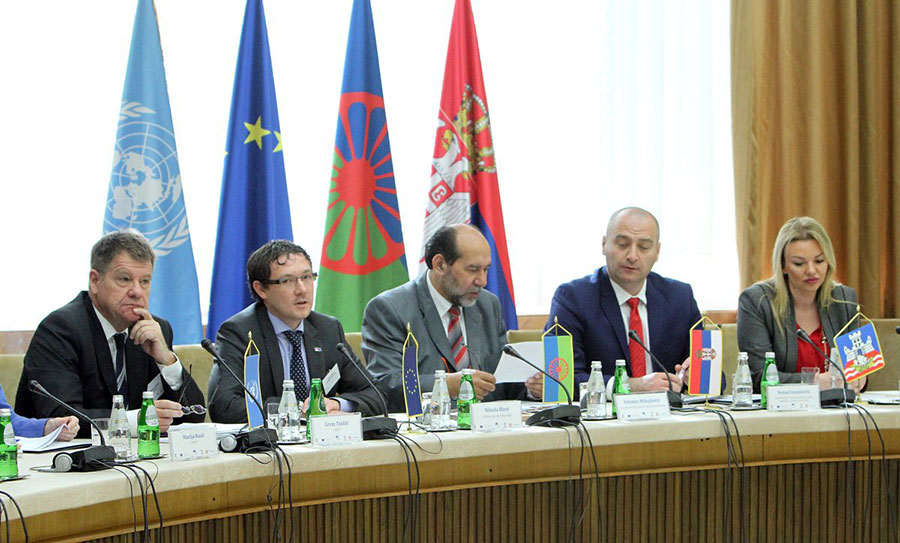Representatives of Roma community in Serbia should be more engaged in the process of adopting action plans pertaining to Strategy for Social Inclusion of Roma 2016-2025 at national and local level, whereas CSOs engaged in improving the status of Roma should take part in project preparation – these are some of the main findings of today’s conference on improving the status of Roma through projects funded by the EU and implemented by UNOPS in Serbia.
“European Union will continue to support the improvement of the status of Roma and intends to allocate additional EUR14 million for new projects which should contribute to the development of fair and inclusive society,” said Head of Operations I at the EU Delegation to Serbia Nicolas Bizel. “These projects have indeed been a major shift in Roma inclusion and can serve as good examples for future projects. However, there is a lot of work ahead before we reach a satisfactory level of Roma inclusion,” Bizel said.
Through the project “Let’s Build A Home Together,” funded by the EU and implemented by UNOPS in cooperation with the City of Belgrade, housing solutions have been provided to 110 Roma families, with 512 family members, through social housing apartments, purchase of rural households, support for reconstruction of the existing houses and other income generating activities. The project “EU support for Roma employment” has enabled employment of 74 persons, whereas 270 Roma have been engaged in active measures of employment.
 “Our experience shows that active participation of Roma, being one of the most vulnerable communities in Serbia, is necessary at all levels in order to improve their status and decrease inequality and poverty,” said Manager of UNOPS Serbia Project Centre Graeme Tyndall.
“Our experience shows that active participation of Roma, being one of the most vulnerable communities in Serbia, is necessary at all levels in order to improve their status and decrease inequality and poverty,” said Manager of UNOPS Serbia Project Centre Graeme Tyndall.
Today’s discussions within working groups helped the representatives of Serbian Government, local self-governments, CSOs and international institutions and organisations to define the lessons drawn from the projects dealing with housing, employment and inclusion of Roma. The conclusions made will contribute to drafting of action plans for the implementation of Strategy for Social Inclusion of Roma 2016-2025.
“Representatives of Roma national minority have been actively engaged in preparing the Strategy because it is important to include them in creation of policies which affect them directly,” said State Secretary of the Ministry of Labour, Employment, Veteran and Social Affairs Nenad Ivanisevic. He added that the Strategy, and its pertaining action plan, should contribute to improving the status of Roma in the areas of education, employment, health and social protection.
“Roma community remains the most marginalised group, subject to discrimination and stereotypes. In order to move away from this trend, it is important to give them roof over their heads and the opportunity to gain income and educate themselves,” said President of Roma National Council in Serbia Vitomir Mihajlovic.
One of the main conclusions of the conference was that Serbian authorities and institutions should prevent discrimination against Roma at all levels, through consistent enforcement of laws; even though this applies to all aspects of life, particular attention should be paid to the aspect of employment. Also, eviction from informal settlements should be carried out only when absolutely necessary, methodically an in a timely manner, in order to allow everyone to exercise their right to adequate housing.





